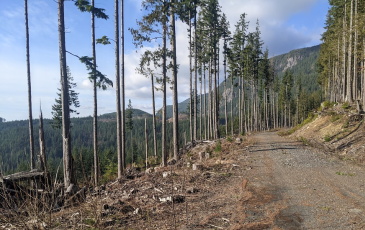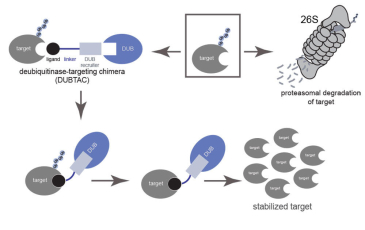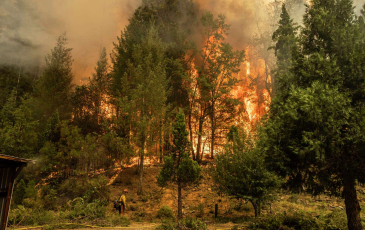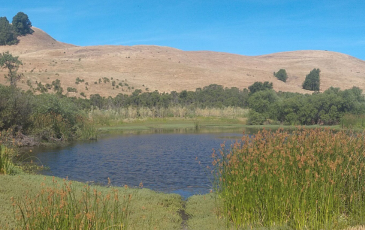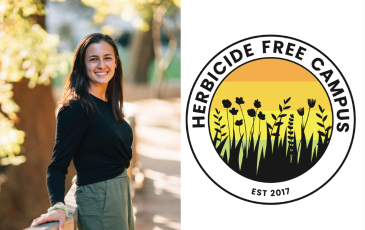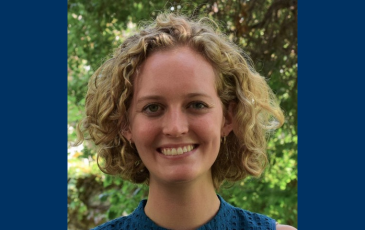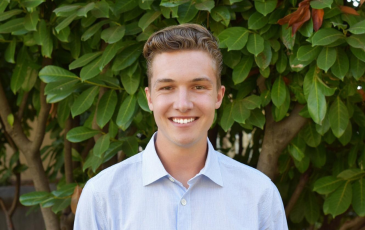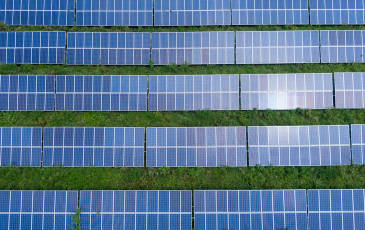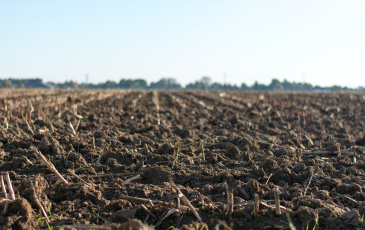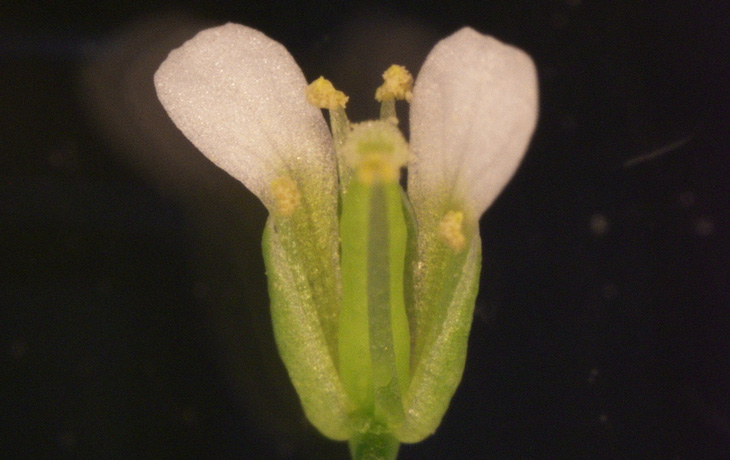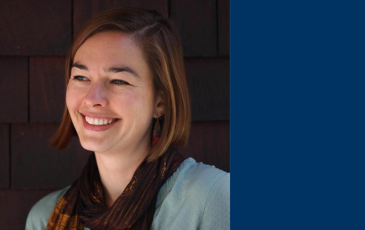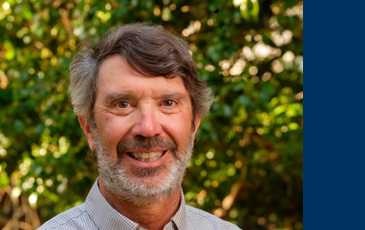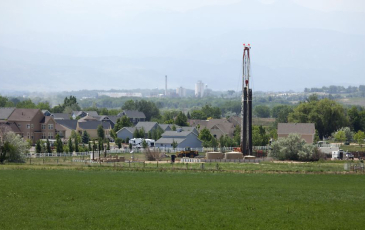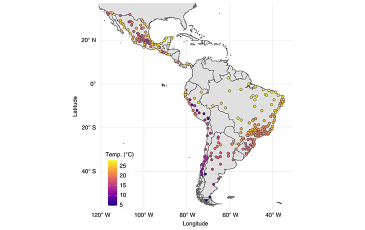In a recent LA Times op-ed, ESPM Professor Scott Stephens calls on forest managers to commit to active stewardship informed by Indigenous knowledge and cultural fire practitioners.
Three in Rausser College named UC President’s Postdoctoral Fellows
David J.X. González, Alexander Huezo, and Jesús Martínez-Gómez are among the 2022-23 cohort of fellows.
New research identifies patterns of carbon accumulation in planted forests
Research by former ESPM PhD student Jacob Bukoski and Professor Matthew D. Potts might serve as the building blocks for carbon sequestration studies.
UC Berkeley and Novartis extend Alliance to tackle “undruggable” disease targets
The research collaboration aims to unlock intractable drug targets, discover new therapeutic modalities, and accelerate discovery of novel medicines.
Why the largest fires aren't always the most devastating
Professor Scott Stephens explains how high-severity fires have drastically changed their environment.
A visit to the lab with PhD candidate Luis Valentin-Alvarado
Valentin-Alvarado breaks down his research for the Spanish-speaking community in this new video produced by Science at Cal
Rausser College recognizes two retiring faculty members
We thank Professors Catherine Koshland and Joseph Napoli for their service to the University.
Understanding the function of plant diversity in wetland ecosystems
A first-of-its-kind analysis by ESPM Professor Iryna Dronova found that plant diversity plays a key role in improving seasonal biomass stability.
Advocating for a toxin-free world
The Berkeley Food Institute speaks to ESPM alum Mackenzie Feldman about her work on pesticide reform and interest in food systems.
Rausser College launches Master of Nutritional Sciences and Dietetics program
The new graduate program will prepare students for careers as dietitians.
Understanding Plant Immune Systems Informs the Past and the Future
In a recent Wonderfest event, grad student Chandler Sutherland discusses plant and human immune systems, and how we can defend agricultural crops against disease.
CRISPR Crops: Food, Farms, and the Shape of Plants to Come
In a recent Wonderfest event grad student Evan Groover discussed how gene editing technology can meet the needs of a growing human population and a warming world.
Debunking the myths that discourage public funding of clean energy
New commentary led by ESPM Professor Jonas Meckling urges governments to spur decarbonization by moving beyond the myths surrounding public investment in clean energy that discourage the use of public funds.
How healthy soil can improve crop resilience
A new BFI policy brief suggests better soil management may be the key to climate resilience and drought tolerance in crops.
Understanding the “romantic journey” of plant reproduction
A breakthrough study by PMB Professor Sheng Luan uncovers how peptide emissions and calcium signals serve as “love notes” during the plant fertilization process.
ESPM Professor Scott Stephens appointed to federal wildfire commission
Stephens, a professor of fire science and ecology and co-director of Berkeley Forests, will advise federal efforts to better prevent, mitigate, suppress, and manage wildland fires.
How Agricultural Power Structures Inform Rural Responses to Climate Change
ESPM PhD candidate Margiana Petersen-Rockney speaks with the Daily Yonder about how climate change messaging–or the lack thereof–by farm service providers affects rural communities.
Professor Dennis Baldocchi awarded international water prize
The Prince Sultan Bin Abdulaziz International Prize for Water recognizes cutting-edge innovation in water research.
Multi-layered strategies needed to protect public health from oil and gas drilling impacts
Rachel Morello-Frosch is senior author on a commentary out today in Environmental Research Letters on developing policies to mitigate the impact of gas and oil production.
Extreme temperatures linked to increased mortality in Latin America
ESPM Professor Iryna Dronova co-authored the multidisciplinary study published in Nature Medicine.




